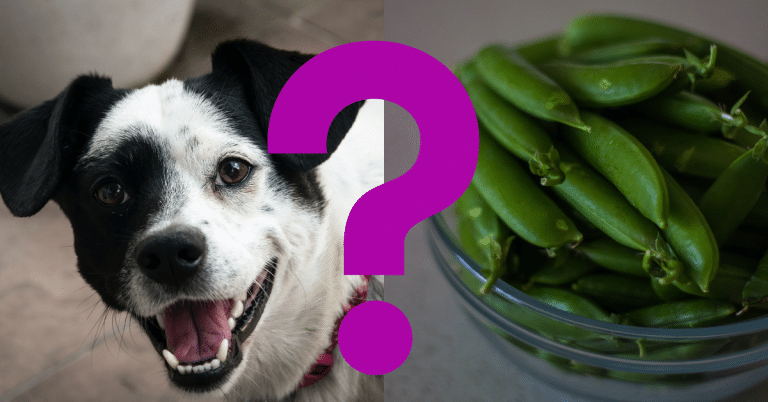Can Dogs Eat Raisins? A Vet’s Opinion

Raisins are dried grapes with a sweet natural flavor and are rich in calories and sugar, but can you feed raisins to your dog?
The answer is no, as raisins and grapes can be toxic and cause kidney failure in canines. Dogs can become seriously ill from even a small amount of raisins or grapes, including vomiting, diarrhea, lethargy, and decreased urine output. It is best to keep raisins and grapes away from dogs, and if you think your dog has consumed them, you should seek urgent veterinary care. Offer your pup safe, healthy treats created just for dogs instead.
Benefits Of Raisins For Dogs
Giving raisins to dogs has no recognized advantages. As stated, raisins can be unhealthy for dogs and cause serious health problems. The best action is to refrain from giving your dog raisins and other human foods not designed for canine consumption.
Many secure and healthy dog treats are accessible to give your pet some treats. These snacks can offer several advantages, including aiding your dog’s dental hygiene, encouraging healthy digestion, and supplying vital nutrients supporting general health and well-being. Based on your dog’s demands and dietary requirements, consult your veterinarian to determine the best kind and quantity of treats.

How To Safely Give Raisins To Dogs
Dogs should not be given grapes. For dogs, even a small quantity of raisins can be toxic and lead to kidney failure, which is potentially fatal. The best plan of action is never to give raisins to your dog.
Many choices are available specially created for canine consumption if you want safe and healthy treats for your dog. Consider purchasing treats with high-quality components, such as whole grains, lean protein, and dog-safe fruits and veggies like blueberries, bananas, and pumpkins. If a treat contains ingredients like chocolate, xylitol, or macadamia nuts, study the ingredient label closely and steer clear of it.
Will Raisins Make A Dog Sick?
Yes, raisins can make a dog sick and even lead to kidney failure. Even in small quantities, the toxin found in raisins and grapes can make dogs experience severe and possibly fatal symptoms. Although the ingredient in raisins and grapes that makes them toxic to canines is unknown, it is thought to be a combination of naturally occurring compounds in these fruits. When consumed by dogs, the toxic substances in raisins can result in various symptoms, including nausea, vomiting, diarrhea, abdominal pain, lethargy, dehydration, and decreased urine output. In extreme instances, eating raisins can cause kidney failure, which can be fatal. Increased thirst and urination, appetite loss, vomiting, diarrhea, weakness, and seizures are a few signs of renal failure.
Not all dogs will exhibit raisin toxicity; some may be more susceptible to the toxic substances than others. Additionally, a dog’s size and condition can affect how many raisins are required to become toxic. As a result, it’s best never to give your dog raisins and get medical help immediately if you think your canine may have ingested any of them. As a result, raisins can be dangerous for canines and result in various severe symptoms, such as kidney failure. It’s best to keep raisins and grapes out of dogs’ reach and select secure, wholesome treats made just for canines. You must seek veterinary care to avoid potential complications when you think your dog has consumed raisins or grapes.
Can dogs eat raisins variations?
All raisin varieties, including golden raisins, currants, and sultanas, should not be consumed by canines. Like the symptoms of eating raisins and grapes, these dried fruits are also known to be toxic to canines.
Although the exact poison in raisins and their variants is unknown, it is thought to be a combination of chemicals that can, even in small doses, cause kidney failure and other severe symptoms in dogs.

Vet’s Summary
Due to toxic compounds that can cause kidney failure and other severe health problems, raisins are unsuitable for canines to consume. Dogs can experience severe symptoms from even small doses of raisins, such as vomiting, diarrhea, lethargy, and decreased urine output. It is best to keep raisins and other dried fruits out of dogs’ reach and select secure, wholesome canine treats.
Probiotic supplements are advised for canines as they can support a healthy digestive system and strengthen the immune system. If you’re thinking about giving your pup probiotics, it’s crucial to pick a high-quality supplement that is made just for dogs. Consult with your vet regarding the ideal probiotic supplement for your canine and the suggested dosage and manner of administration. Never use probiotic supplements to replace veterinary treatment; if your canine exhibits any symptoms of illness or digestive problems, you should take them to the vet right away.
Videos To Watch
If you are wondering what related foods are good to give your dog, watch this:
And if you want to know what a dog can NOT eat, watch this:






